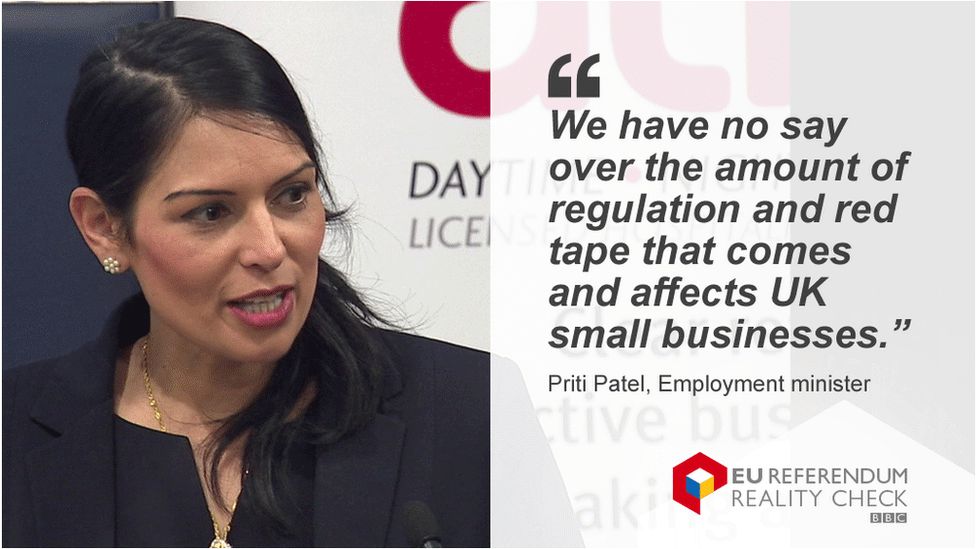Reality Check: Do we have a say over EU small business regulations?
- Published

The claim: Priti Patel says the UK has no say over the amount of regulation coming from the EU. She also says the UK is constantly being outvoted.
Reality Check verdict: The UK does have a say over regulations affecting small businesses, both through its MEPs and government ministers who vote at the Council, where they have been on the "winning side" 86.7% of the time in recent years.
EU regulations that affect business, as well as most other EU legislation, is usually drafted by the European Commission, but it must then be agreed by the EU Council, which is made up of the member states' government ministers, and the European Parliament, where MEPs from all 28 EU countries sit.
The UK has a say at both the Council and the Parliament: the UK government is represented at the Council and the elected British MEPs take part in the process of amending legislation and voting on it at the European Parliament.
Most of the decisions at the Council are made by Qualified Majority Voting (QMV) under which 16 out of 28 countries, representing at least 65% of the total EU population, have to agree.
In practice, this means that the UK has around 12 to 13% of the votes. Germany, the biggest country, has 16%, while France and Italy have, like the UK, around 12 to 13%. The 22 smallest EU countries have a combined vote of around 30%. No country has a veto and all countries, including the UK, sometimes disagree with the decisions taken.
Leave campaigners say the UK is constantly outvoted at the Council.
Research comparing the period 2004-2009 with 2009-2015, suggests that the UK is the country most likely to vote against the majority, and that it increasingly disagrees with EU legislative decisions.
However, in the vast majority of cases, the UK voted on the winning side: 97.4% of the time in 2004-09 and 86.7% of the time in 2009-15.
When it comes to regulations affecting small businesses, the EU-UK renegotiation deal, which would take effect if the UK votes to stay in the EU, committed the European Commission "to make EU law simpler and to reduce regulatory burden for EU business operators".
The agreement goes on to say: "Cutting red tape for entrepreneurship, in particular small and medium size enterprises, remains an overarching goal," although it's not clear what effect this would have in practice.
- Published22 February 2016